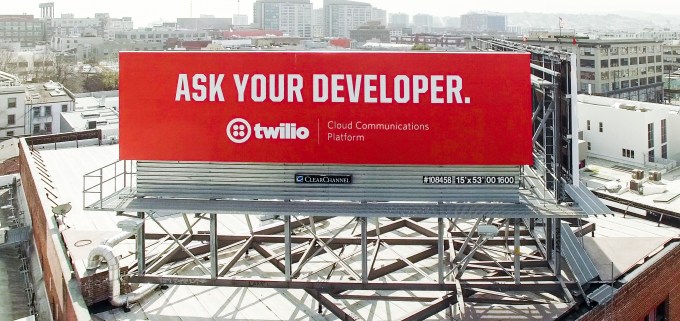Twilio CEO Jeff Lawson knows a thing or two about unleashing developers. His company has garnered a market cap of almost $60 billion by creating a set of tools to make it easy for programmers to insert a whole host of communications functionality into an application with a couple of lines of code. Given that background, perhaps it shouldn’t come as a surprise that Lawson has written a book called “Ask Your Developer,” which hit the stores this week.
Lawson’s basic philosophy is that if you can build it, you should.
Lawson’s basic philosophy in the book is that if you can build it, you should. In every company, there is build versus buy calculus that goes into every software decision. Lawson believes deeply that there is incredible power in building yourself instead of purchasing something off the shelf. By using components like the ones from his company, and many others delivering specialized types functionality via API, you can build what your customers need instead of just buying what the vendors are giving you.
While Lawson recognizes this isn’t always possible, he says that by asking your developers, you can begin to learn when it makes sense to build and when it doesn’t. These discussions should stem from customer problems and companies should seek digital solutions with the input of the developer group.
Building great customer experiences
Lawson posits that you can build a better customer experience because you understand your customers so much more acutely than a generic vendor ever could. “Basically, what you see happening across nearly every industry is that the companies that are able to listen to their customers and hear what the customers need and then build really great digital products and experiences — well, they tend to win the hearts, minds and wallets of their customers,” Lawson told me in an interview about the book this week.

Image Credits: Twilio (image has been cropped)
He says that this has caused a shift in how companies perceive IT departments. They have gone from cost centers that provision laptops and buy HR software to something more valuable, helping produce digital products that have a direct impact on the business’s bottom line.
He uses banking as an example in the book. It used to be you judged a bank by a set of criteria like how nice the lobby was, if the tellers were friendly and if they gave your kid a free lollipop. Today, that’s all changed and it’s all about the quality of the mobile app.
“Nowadays your bank is a mobile app and you like your bank if the software is fast, if it is bug free and if they regularly update it with new features and functionality that makes your life better [ … ]. And that same transformation has been happening in nearly every industry and so when you think about it, you can’t buy differentiation if every bank just bought the same mobile app from some vendor and just off the shelf deployed it,” he said.
Source: Tech Crunch

